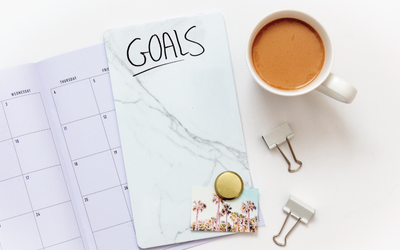Digital detoxes are becoming more popular as people realise how reliant they are on technology. Many of us look at our smartphones as our first action of the day, before we even roll out of bed. Studies have shown that our technology addiction has grown to the point where some Australians check their screens every five minutes. As much as we can try to convince ourselves that technology is an essential part of life, the truth is we don’t need to be contactable or entertained 24 hours a day.
At Tradewind, we support our teams disconnecting from work when they leave the office. Here are our top tips for unplugging from technology – helping you regain control of your professional, social and personal life.
Savour the Silence
Putting your smartphone on silent for a few hours provides a welcome respite. This is especially helpful when you need to concentrate or when you want to fully escape reality, for example when reading a book. Better still, you can put your phone on airplane mode to remove any temptation caused by flashing notifications.
This rule can also apply in your workday, during periods when you don’t want to be interrupted. There’s nothing worse than having a meeting with a colleague who keeps checking their phone every time it goes off, or when you’re trying to read a report and keep getting distracted by calls and emails. Let your colleagues know you’re offline for the period of time and should only be interrupted for legitimate emergencies.
Limit Work to the Workplace
In a world of smartphones, laptops and remote working arrangements, it can sometimes be challenging to draw the line between work life and home. It’s not uncommon for some employees to be checking emails while eating breakfast or just before bed. This means countless hours of overtime are being clocked up, and you are spending valuable time away from your friends and family.
Try setting a time each evening to turn your work phone off (or at least put it away), for example, 8 pm. Make your weekends and vacations a no-work zone so you can truly disconnect and recharge. It’s helpful to have a discussion with your colleagues and manager in advance to set boundaries around your work hours and understand everyone’s expectations.
Practice Mindfulness
Walking to work can be the ideal time to catch up on the news, your favourite podcast or lose yourself down the YouTube rabbit-hole. However, looking at your phone while walking in public can be distracting and even dangerous. Instead, you can use this time to practice mindfulness – being conscious of your movement, your breath and the world around you. You’ll arrive at the workplace feeling calm, energised and ready to take on the day.
You can continue your mindfulness practise throughout the working day, taking 5-10 minutes for yourself every few hours. Just move away from your screens, close your eyes and focus on your breathing. Try to quieten the competing thoughts and tasks that pop into your head. Once you open your eyes, you’ll feel refreshed, focused and more productive.
Summary
Taking a break from technology helps your mind and body recover from the stresses of daily modern life. While many of us love the escapism of social media, for example, for some it can be overwhelming and lead to anxiety, exhaustion and even depression. The constant pressure to work 24 hours a day, seven days a week, is not healthy or sustainable. So, do yourself a favour and prioritise your wellbeing by switching off.
If you’re looking to find a role with an organisation that values work-life balance, talk to our team specialising in Education and Social Work jobs.

